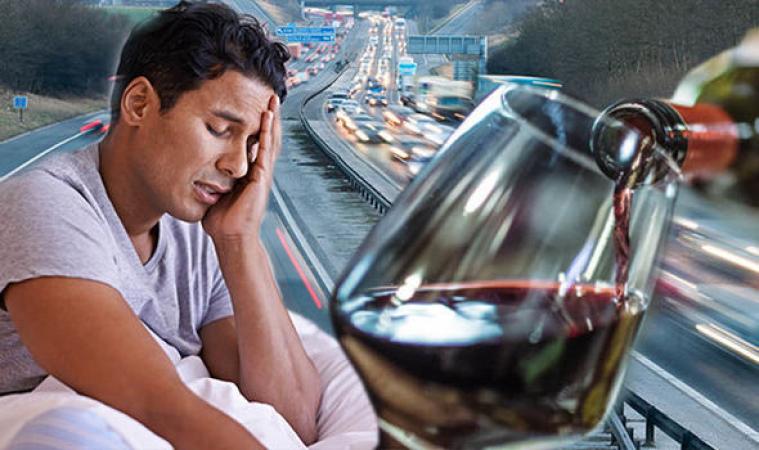
Alcohol soothes the brain. It affects gamma-aminobutyric acid (GABA) receptors, and they give a signal to slow down the activity of nerve cells. “So you become joyful and relaxed when you drink,” explains David Nutt, a professor of neuropsychopharmacology at Imperial College London.
The first two servings of alcohol introduce you to the blissful state of calm caused by GABA. When you get to the third or fourth glass, another process is activated that inhibits the brain. Substances in the composition of alcohol reduce the activity of glutamate - the main excitatory neurotransmitter of the brain.
The less glutamate, the less anxiety, and vice versa. So when people get very drunk, they don’t worry about anything . In this state, it seems that life is beautiful, but do not rush to conclusions.
Soon the body fixes an imbalance of chemicals in the brain and tries to correct the situation. This is similar to the processes that occur when you eat a lot of sweets. To normalize blood sugar levels, the body produces a lot of insulin. But as soon as the eaten sweetness is digested, the accumulated hormone causes a sharp drop in glucose level, which makes you hungry.
also read: Here Secrets behind to Weight Loss Mantra for overall well being and healthiness
Therefore, after abundant libations, you are waiting for an extremely low content of GABA and a jump in glutamate. This leads to anxiety. And also to convulsions that often occur with a hangover. The brain needs a couple of days to return to its normal state. “If you drank a lot for a long time, it can take weeks to recover,” Nutt says. “And for alcoholics, changes in the GABA level have been observed for years.”
Usually these processes are started while you are trying to sleep. “Drunk people fall asleep quickly ,” Nutt continues. “Their sleep is deeper than sober, which explains instances of involuntary urination and nightmares.” After about four hours, breaking begins. A person wakes up trembling and nervous. "
However, the imbalance of GABA and glutamate is not the only problem. Alcohol also causes a slight increase in norepinephrine. This hormone is involved in the "hit-or-run" reaction. At first it suppresses stress, but then, on the contrary, increases it. So heightened anxiety is a sign of a release of norepinephrine.
This is caused by a deviation in glutamate levels. We need it for the formation of memories. After the sixth or seventh glass of alcohol, glutamate receptors are blocked by ethanol, so you don’t remember anything in the morning.
However, the hangover anxiety does not affect everyone equally. Researchers surveyedShyness, alcohol use disorders and hangxiety: A naturalistic study of social drinkershealthy young people, how anxious they feel before and during their drinking, and the morning after.
According to psychopharmacologist Celia Morgan (Celia Morgan), shy people anxiety the next morning is much higher. Perhaps this is due to the fact that their GABA level was initially underestimated. But it can be in psychology. Anxious people are usually more prone to obsessive thoughts about the past.
Unfortunately, there is little that can be done except to drink less. In the morning, take a painkiller, so as not to disturb the head. And in any case, do not treat hangover anxiety with a new portion of alcohol. This is the path to addiction.
also read: Vitamin B12 deficiency in your body can lead to many diseases; read causes and remedies here
Try to break out of the vicious circle. “Before drinking in the company, to feel more confident, imagine a hangover the next day,” says Morgan. “If you cannot communicate without alcohol, you will be stuck in this circle, and the hangover anxiety will only increase.”